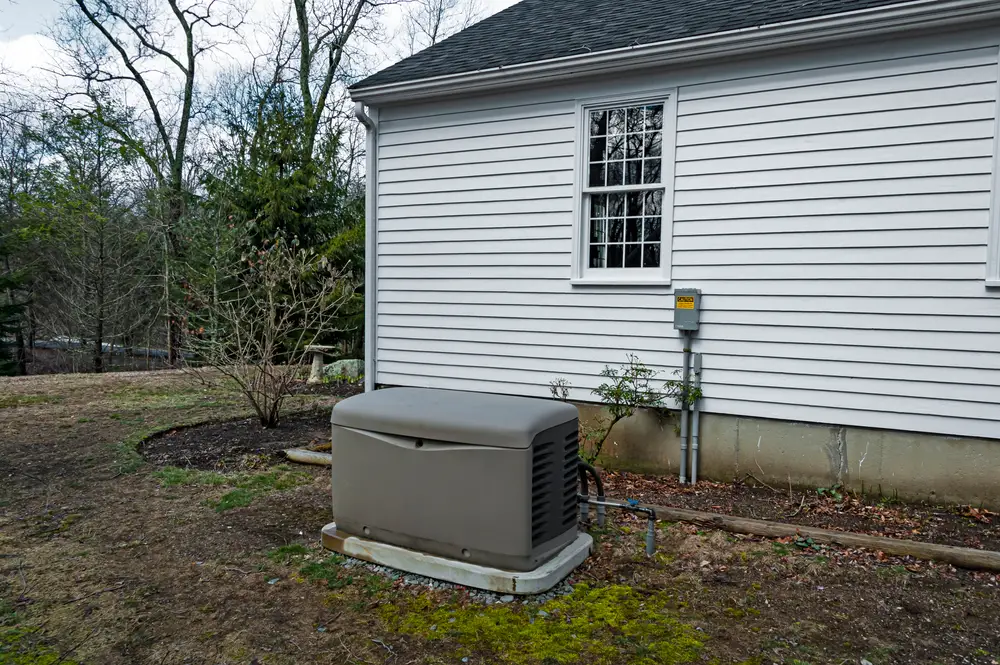While camping is a great way to escape from the real world and be at one with nature, there is one thing that a lot of people simply can’t live without during this time, and that is electricity.
Camping is fun, there’s no doubt about that, but it can be hard to go without electricity, even for a few days.
Some people can’t afford to be completely cut off from the outside world and need to keep their phones charged, others need electricity to entertain their kids, and others simply need electricity to cook their food while they are away.

Most people get their electricity from a generator while they camp as these handy devices can hold lots of electricity to cover you for the time you are away.
While portable generators are used for other purposes, primarily they are used on camping trips due to their convenience and ease of use.
But there is one thing that leaves people puzzled about portable generators, and that is ‘do they need to be grounded?’.
In short, the answer is yes, so let’s take a look at why it is important to ground your portable generator and how you can do this.
Table of Contents
Do I Need to Ground my Generator?
As we have already established, yes you do need to ground your camping generator.
Safety is of the utmost importance no matter where you are using your generator, and if you do not ground your portable generator then you are potentially putting yourself and other people at risk.
Camping is meant to be a relaxing experience, so the last thing you want is for somebody to become injured because of your generator.
If you are new to the world of generators, you might not be aware of what it means ‘to ground’ a generator, so let’s take a quick look.
Grounding a generator is the process of connecting a device that produces electricity to the ground so that it is safe to use. If not grounded, electricity can easily pass between the generator and anything that it touches, which is why it can cause injury.
By connecting the generator to the ground you are minimizing the chance of electrocution or electrical fault as the electricity also travels into the ground.
It is worth noting that not all portable generators will require grounding as some are designed to not require this, making the job easier for the user.
However, if you are unsure whether or not your generator requires grounding or not, the chances are that it will.
So now that we know the answer is yes, let’s take a look at how you should go about grounding your generator. But first, let’s take a look at what you will need.
What You Need
Before we get started on grounding your generator, you will first need to collect the things required for the job.
To help you gather the things that you will need, we’ve put together this quick list of what you need and why you will need it.
So here it is:
- Copper Wire - This is essential for connecting to the copper rod and grounding the generator.
- Copper Rod - This is the most important thing that you need to ground the generator as this is what will be connecting your generator to the ground. Your copper rod should be no shorter than 4 feet in length to successfully ground the generator.
- Wire Strippers - Most portable generators that require grounding come with insulated grounding wire. To be able to ground the generator, you will need to strip off the insulation at both ends so that you can connect the wire to the copper wire.
- Pliers - These will be used to twist the copper wire around the grounding copper rod to ensure a good connection between the two, and that the generator will ground successfully.
- Hammer - More often than not you will need a hammer to be able to pound the copper rod into the ground, you might be able to begin the process with your hand or foot but to get the rod deeper into the ground you will need a hammer.
- Wrench - You will need to do this to connect the grounding wire to the generator as most generators come with nuts that are screwed very tight.
Now that you have gathered everything that you need to ground your generator, let’s take a look at how you do it.
How to Ground your Generator
Once you have all of the tools gathered, you are ready to begin grounding your generator so let’s take a look at what you need to do.
The first thing that you need to do is take your copper rod and hammer it into the soil where you want to keep your generator.
In some circumstances, the ground might be soft enough for you to get it in yourself, but more often than not you will need a hammer to do the job.
Even if you can get the rod into the ground, it is best to use a hammer to get it deeper as the deeper the rod is the better it will be at grounding your generator.
Next, you will need to strip your wire. You should take your wire strippers and carefully strip each side of the wire, but ensure that you do not strip all of the insulation off of the wire. You must only remove enough to allow you to twist the wire around the copper rod.
Following that, you should then begin to wrap the wire that you stripped around the copper rod which you have hammered into the ground.
Ensure that you wrap the wire tightly around the rod to make sure that the generator is safe to use. Once you have attached the wire to the rod, you can then begin the final step which is attaching the other end of the wire to your generator.
Once you have done this, your generator is grounded and ready to use.
Summary
In short, yes you do need to ground your generator when you are camping.
This ensures that the generator is perfectly safe and will not accidentally electrocute you or anybody else on your campsite.
- Are Merrell Shoes Good? – An Unbiased Review of Merrell Footwear - December 9, 2023
- Where Are Merrell Shoes Made? - December 9, 2023
- Camping in 40-degree Weather: Tips and Tricks - September 25, 2023


![How to Drive Stakes into Rocky Ground? [Need to Know] How to Drive Stakes into Rocky Ground? [Need to Know]](https://grandcircletrails.com/wp-content/uploads/2022/03/How-to-Drive-Stakes-into-Rocky-Ground-1-150x150.jpg)


![Best Wood for Campfires [Everything You Need To Know] Best Wood for Campfires [Everything You Need To Know]](https://grandcircletrails.com/wp-content/uploads/2021/11/Best-Wood-for-Campfires-1-150x150.jpg)
![Are Hiking Boots Good For Snow? [Everything You Need To Know] Are Hiking Boots Good For Snow? [Everything You Need To Know]](https://grandcircletrails.com/wp-content/uploads/2021/11/Are-Hiking-Boots-Good-For-Snow-1-150x150.jpg)